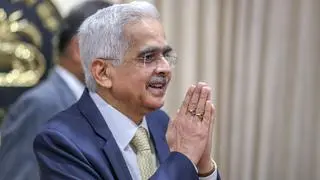India and the EU kicked off the first round of negotiations on a bilateral free trade agreement (FTA) in New Delhi on Monday, aiming for a speedy conclusion of three separate pacts in the areas of goods, geographical indications (GIs) and investment protection.
“Opening a new chapter in EU-India relations. Today is the first round of negotiations for comprehensive trade and investment agreements between the EU and India,” according to a tweet from the International Trade Department of the EU.
While negotiations on goods, investment protection and GIs would be held on different tracks, both sides have decided that the effort would be to conclude them all simultaneously, preferably by 2023-end.
After nine years
Negotiations on the India-EU FTA have re-started nine years after the first attempt to get into an FTA, initiated in 2007 and abandoned in 2013 over a multitude of issues. These included market access in India for automobiles and wines, the EU’s insistence on inclusion of non-trade issues such as environment and labour in the agreement and India’s demand for more liberal work visa rules.
While India has now agreed to include areas such as labour and sustainable development in the pact, officials say that the country is in a comfortable zone because of efficient domestic laws and high international commitments already undertaken.
“As is the case in all EU trade agreements, the future arrangement with India would also include ambitious and enforceable provisions on trade and sustainable development, helping us to reach our climate goals under the European Green Deal and promote high environmental and labour standards in the EU and India,” the EU said in a statement earlier this month.
The first round of FTA negotiations will be held between June 27 and July 1.
India hopeful
India is hopeful of making gains in areas such as textiles, leather, sports goods, and processed food as the proposed FTA could place Indian exporters on par with exporters from competing countries such as Bangladesh and Vietnam that already have preferential access into EU markets.
The EU hopes to get higher market access in products such as automobiles and wines and spirits, where customs duties in India are relatively high.
India-EU trade in goods posted a growth of 43.5 per cent to reach a high of $116.36 billion in 2021-22 . India’s exports to the EU increased 57 per cent in 2021-22 to $65 billion, according to government figures.








Comments
Comments have to be in English, and in full sentences. They cannot be abusive or personal. Please abide by our community guidelines for posting your comments.
We have migrated to a new commenting platform. If you are already a registered user of TheHindu Businessline and logged in, you may continue to engage with our articles. If you do not have an account please register and login to post comments. Users can access their older comments by logging into their accounts on Vuukle.